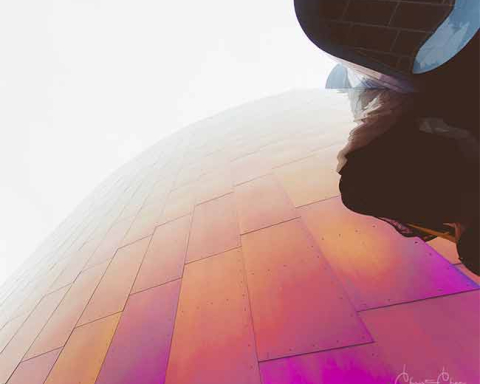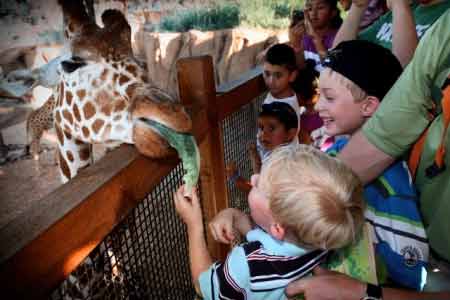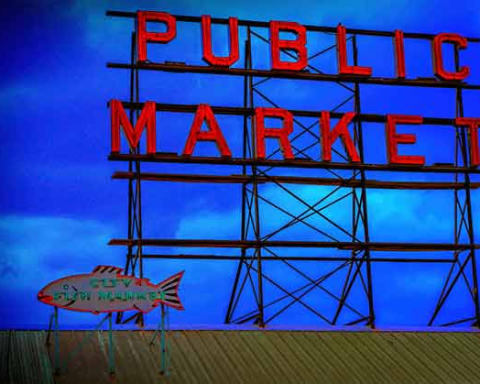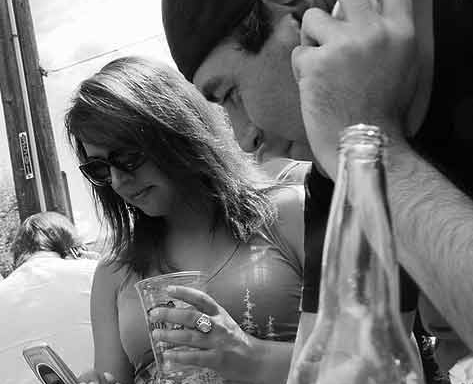When I left the USA (Seattle, Washington) bound for the Southern Hemisphere in late 2014, my goal was to develop a greater understanding of where things come from; especially food. Most of my life had been spent in the suburbs of Seattle either working in an office or building houses/home remodels. It troubled me that I had spent my life eating food (grains, meats and veggies/fruits) that had come from a place that I knew nothing about. I feel deeply insecure about being so reliant on something that I have no control over. If I’m honest, I had next to no understanding of the processes needed to produce food! I needed to learn more about the world in order to understand my role, I needed to get dirty.
So I flew to Australia and got a harvest job out in the orchards around Stanthorpe, Australia. My first gig was cutting broccoli from the ground and placing it on a tractor that carried a conveyor belt which hung out over the enormous veggie patches. I would awake at 5:30 with the rising sun and work until late in the evening, bending over and cutting broccoli all… day… long… It was backbreaking work. We worked barefoot because it was simply the best way. After about 2 weeks I was exhausted, my feet were rotting from from the moisture and the repetitive work.
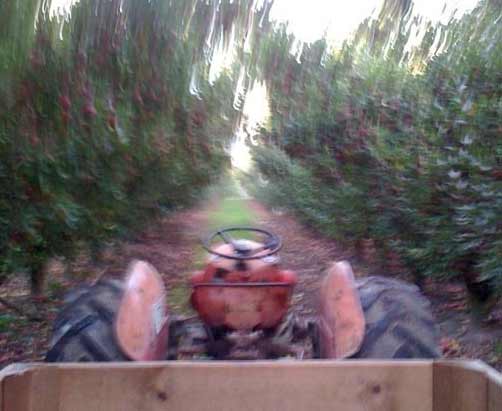
Luckily, for the first time in my life, I was fired. Apparently, I wasn’t harvesting fast enough. Honestly, I think it’s because my heart wasn’t in it. Vegetable harvesting is brutal.
My next job was harvesting apples. This was far less harrowing than the broccoli but it was none-the-less very demanding physically and even more taxing mentally. The repetitious nature of picking thousands of apples a day, day after day, 5-6 days a week was very challenging. The skin on my fingers split, I got blisters on my feet, my sweat drenched shirts would fall to pieces visibly every day. I couldn’t buy sacrificial shirts fast enough to keep up with the degradation.
I learned a good amount about vegetables and fruit, I took a vacation and went about understanding where meat comes from. My friend and I found station hand jobs at a super isolated cattle station in the middle of Outback Australia. Just like the fruit picking and the vegetable harvesting, we’d awake with the rising sun and work until the sunset. There was lots of filthy diesel engine work, welding, fence repair and horse work involved. I learned so much, and each day I’d come back to the ranch house a filthy mess. Showers never felt so good.
The value of all this experience is incalculable. Not only did I learn about how food is produced, I gained a fundamental respect for farmers. I learned to weld, build fences, harvest vast areas and I got the fundamentals for what it takes to provide enough food for hundreds of people. The world would be a better place if everyone had a more fundamental understanding of what it takes to provide for their subsistence. I recommend you do something to produce your own food. Everyone should get a little dirty.
9 Steps to getting your financial working life in order while in Australia:
Touch down in Australia with a decent sum of money.
- I landed in Australia with about $6,000 AUD. This small sum dried up really quickly. Everything costs an arm and a leg. From the taxis, to the phone calls, to the cheapest kebab places; everything hemorrhages your money in Australia. Though I could have gotten by with $4,000 AUD, it would have been a challenge and I recommend $5,000 AUD or more.
Buy a Camper-van or a Station-wagon you can sleep comfortably in.
- This might sound like homeless living to anyone who hasn’t lived in Australia, but living on the road is part of the Australian way. There are plenty of free spots to park and sleep along the road. Some provide showers, fresh water and often a push button electric BBQ. You will be at home in your camper van with other travelers doing the same as you, as well as wit the “grey nomads.” These are the retired Australians traveling around the country in their camper-vans.
- Take good care of your vehicle and sell it at the end of your trip for the same you bought it for. Spending more on your home on wheels isn’t a bad idea.
Get an Australian Bank Account
- Many jobs will want to direct deposit money for you. This is ideal for you anyways because it allows you to stay mobile.
- Westpac is the biggest bank in Australia. You can start a no fee checking account:
- Bring your passport and 2 other forms of ID
- Bring proof of address – Either that or just get a receipt from a hostel with your name, the hostels address and the date (make sure it is the date you are in the bank getting the account). You can make a fake proof of address easily, just type something up with that information.
- Westpac you can pull your money out for free if you bank with Westpac partners.
Get your Australian Tax File Number (TFN)
- Do this as soon as possible so you can get your taxes figured out – https://www.ato.gov.au/
- YOU ARE AN AUSTRALIAN RESIDENT FOR TAX PURPOSES – Remember this when filling out paperwork for employers.
Set up a Superannuation Fund
- A Superannuation Fund is the government mandated savings system for Australians. Your employer is responsible for paying you wages plus 9% to your superannuation fund. The benefit is that you get this money back when you leave Australia. I got $1,000 back 3 months after I landed in Hawaii. That cash was really helpful for the transition to my new home!
Get a phone. I recommend prepaid cell phone sim card and a functional cell phone
- Being able to make calls and send texts will be important while you move around Australia. Remember: “your network is your net worth”. Be good to everyone you meet, Australia is a huge country yet a small community. Lots of people know each other. While looking for cattle station work, we met some Irish friends in Mt. Isa, QLD. We separated ways for 8 months and met again in Perth, WA. This Irish friend helped my friend get a job as a diesel mechanic making $36 an hour (and my friend had no experience as a diesel mechanic). Knowing people will get you a job far faster than any other attribute.
- I prefer prepaid cards because I hardly used my phone for a month when I got heavy into the fruit picking. Often times the orchards are far from town and your phone doesn’t work anyways.
- As a rule: Vodafone is crap. Optus for life on the coast. Telstra for the outback.
Avoid drinking and smoking until you get a job and good income.
- It’s all too common that backpackers arrive in Australia and spend all their money immediately on booze and smoke. Then the fools have to struggle to get back on their feet. Australian booze is super expensive. Expect to pay $14 for a 6 pack of beer or $46 dollars for a bottle of whiskey. Pouches of tobacco cost nearly $20. Wine is less expensive but is still a waste of resources.
- Heed this advice: Australia is a great place to quit drinking and smoking
While looking for work, do something that is free and exciting.
- Surfing, kayaking, fishing, horse riding, free diving, hiking are all options that will save your ass. Plus you might get lucky and meet someone that can help you get a good gig.
Set a goal and stick to it
- When I landed in Australia in February I set the goal to save $8,000 before I departed for South Africa in May. Even though I didn’t quite get there (spent a bit to much time surfing), the goal really helped me through some of the more miserable days of fruit picking.
Get these chores behind you and you will be ready to be employed in Australia. I struggled with working and doing all these things for months. Hopefully these tips are useful to you! Yehaw!
Australian Working Holiday Visa Overview – Only For Australian Residents
A working holiday visa (WHV) is a great way to see the world while saving money to see more of the world. The strength of the Australian dollar and high wages make it possible to travel long after your year is complete. With Asia right next door, you can travel for two to three times the amount of time you spend working. If you plan to see the world, it is a great idea to work/travel Australia, save money and continue traveling afterwards.
It’s also a great way to learn skills that you never even anticipated learning. While in OZ I learned to weld, surf, ride horses, build fences, muster cattle, live at sea, service diesel engines, fix all sorts of things and work farms. I took the outback approach but you can do anything you wish. For example: A friend of mine lived in Sydney. We visited the Sydney Ballet and he was deeply inspired by the performance. He earned a rigging certificate (rope work for theaters), became deeply involved in the theater scene and now he is a ballroom dancing coach. He also learned excellent Batista skills (Australia has excellent coffee shops).
Other friends of mine learned to be bartenders, fishermen, bakers, chefs among others! This is a great opportunity to find yourself.
While picking apples I was able to make $900 + a week. They were long hard hours (7:00 – 17:00). For one weeks wages I was able to live in Bali w/ my girlfriend for an entire month. In Bali we had a rented scooter, a room overlooking an excellent surf spot (Padang Padang in Bali), surfboard rental, ate out 2-4 times a day and generally did whatever we wanted.


